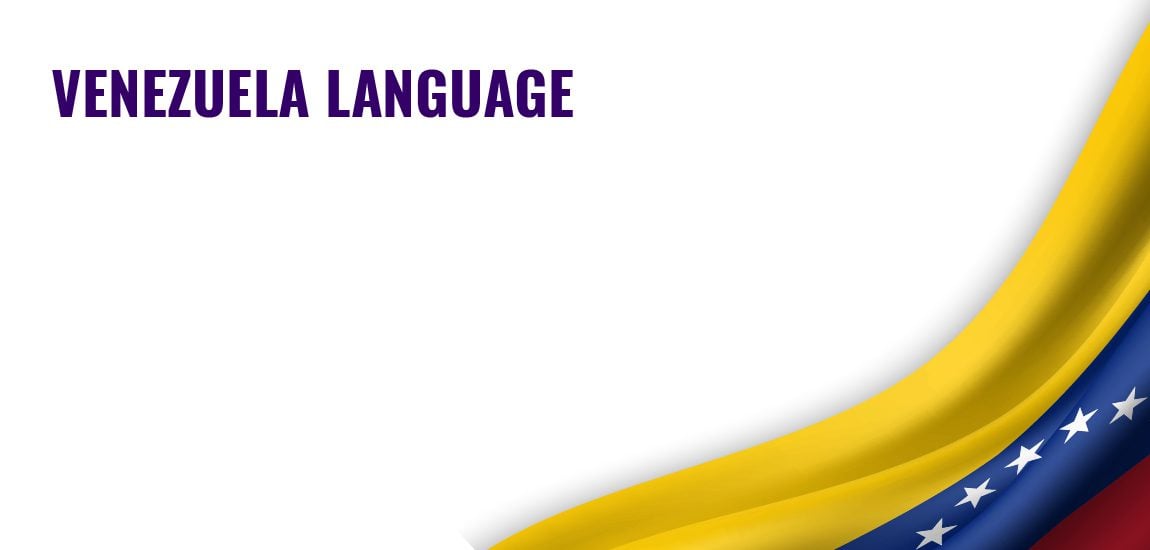
Venezuela Language and Culture
Venezuela Language and Culture
A country is made up of many elements. Although every aspect is essential to a country’s existence, certain features make it unique and identity. Venezuela’s population is similar to most other South American countries, with indigenous people, a prominent Spanish inflow, and a sizable African origin population.
The coastline and lake reflect the symbiotic relationship of the country with both South America and the Caribbean. Each nation has its own languages, traditions, and cuisines. Spanish colonization significantly influenced Venezuela’s culture, society, and cooking. Venezuela, also known as the Bolivian Republic of Venezuela, is a territory located in the northern part of South America. In the north of South America, Venezuela is bordered by the Atlantic Ocean in the North and Brazil in the South.
The coastline and lake reflect the county’s symbiotic relationship with South America and the Caribbean. Colombia lies to the southwest, and Guyana to the east. The national capital of Venezuela, Caracas, is a center for entertainment, tourism, business, institutions, and education. Caracas is home to the country’s top schools.
The Venezuelan government recognizes the diversity of the Venezuelan people’s mother tongues, particularly along the Caribbean coast, where Caribbean languages hold significance. While Spanish is the official language, efforts are made to preserve and promote native languages in schools, including Italian schools in secondary education, fostering a rich linguistic heritage along the northern and Venezuelan coasts in South America.

Venezuelan People
Spanish colonization has profoundly impacted the structure of Venezuelan society’s evolution. The Spanish influence is most notable in the region through its contributions to Roman Catholicism and the Spanish language. Italian, Portuguese, Chinese, Arabic, and English are Venezuela’s most common foreign languages.
People are warm, welcoming, and caring. They share a respect for fairness, equality, and transparency. Simon Bolivar, their national hero, advocated for all these attributes. They believe in transparency and equality because of him. About twenty-five surviving indigenous languages belong to three linguistic families: Caribans, Arawak, and Chibcha.
Although mostly unified, the class=’ent _population’>population and their traditions differ based on their class and ethnicity. Venezuela has established a sizeable middle class in the twentieth century partly due to oil earnings.
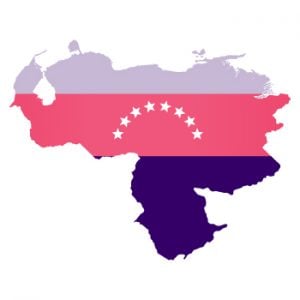
Urbanization and Geographical Divison
Major cities are home to most of the country’s population, and nearly 90% live in urban areas. The Venezuelan landscape has undergone a significant transformation after the rapid urbanization of the last few decades. Due to the shift from rural to urban areas, new urban areas have been formed outside of cities. People who live in rural areas still follow an agricultural lifestyle. They have remained in their villages due to farming.
The geographical division of Venezuelan society is directly proportional to the cultural distinction. For example, people who live in the Andean region are called Andinos. The Andinos are more conservative and religious than other people. Llaneros is the name given to people from the plains. Orientals are the people who live on the east side. Llaneros is also known as the cowboys on the tables.
Facts about the Venezuela Culture and Language and Education
Its rich migration history has affected many parts of Venezuela’s culture. There have been many demographic shifts in the history of Venezuela. Most notable is the Spanish colonization of 16th-century Spain, which resulted in the mass migration of the Spanish people. This scheme also produced the slave trade in Africa. Most illegal immigrants came from Colombia, with smaller numbers migrating from Brazil and neighboring countries. Immigrants from France, Germany, Portugal, Italy, and Portugal arrived in the region. The region was able to develop a variety of ethnicities.
In Venezuela, secondary schools in major cities, such as Ciudad Guayana in the Lara State and Colonia Tovar in the Falcón State, offer diverse linguistic education, with some incorporating the French language alongside the national language. The cultural richness extends to regions like Delta Amacuro and the disputed territory of Guayana Esequiba, showcasing the nation’s commitment to education and heritage, including the legacy of artists like Martín Tovar y Tovar.
In the twentieth century, Venezuelan Spanish emerged as the national language, reflecting the cultural richness of a beautiful country known for its natural resources and historical sites. Despite being one of the largest oil exporters, Venezuela faced challenges, including periods of political instability, such as the military junta.
The nation’s diverse culture is evident in its musical styles, influenced by various traditions. Education plays a crucial role, with topics like the rainy season and the country’s compulsory subjects. Under the leadership of Nicolas Maduro, Venezuela continues to navigate its unique cultural landscape within South America, shaped by the intertwining factors of history, language, and education.
The oil industry, a key economic player, attracts Venezuelan professionals and international workers. Each requires specific visas, such as the Venezuela visa, Venezuela Work Visa, Venezuela Business Visa, or Venezuela Tourist Visa, with exact details available through the Venezuelan Embassy or Venezuela Visitor services. Understanding the complete details is essential for those wishing to explore Venezuela’s heritage while navigating this vibrant nation’s cultural, political, and geographical nuances.
Private schools along Venezuela’s northern coast contribute to the country’s level of education, offering secondary education in various languages, including French, alongside the predominant Venezuelan Spanish. The Venezuelan government, recognizing linguistic diversity, supports initiatives to enhance the educational landscape for the Venezuelan people. With renowned landmarks like Angel Falls, the nation strives to maintain high education standards, making Venezuela one of the richest countries in terms of intellectual capital.
The Impact of Migration on Venezuelan Culture
These factors have contributed to many changes. Spanish, for example, is the official language and the lingua Franca in the country. Music and food in the region mix African, European, and Latin American influences. It can be said that the unique culture of this area is a mixture of many different indigenous cultures. This Europanist trend has also profoundly impacted Venezuela’s large immigrant community. The immigrant population occupies most of the menial and less remunerative employment that Venezuelans ignore.
The Impact of Migration on Venezuelan Culture is evident in the diverse linguistic landscape, as seen in Marabino Spanish, a dialect influenced by American languages, amidst major cities where social spending strains amidst economic challenges such as fluctuating oil prices and foreign debt, while political dynamics involving the United Socialist Party and Democratic Action shape the 21st-century narrative of this South American nation, particularly in regions like Delta Amacuro, a federal dependency grappling with demographic shifts.
Heritage
The multi-ethnicity in Venezuela shows that the Venezuelan population has a mix of heritages. According to data from a survey conducted in the early 20th century, more than half of the population identify as Mestizos. This term refers to people of mixed race, such as Afro-Caribbean and European ancestry. Moreno is another term that’s used to describe mixed-race people. This term is not offensive but is used to describe a mestizo.
About 40 to 41% identify as White, primarily of European heritage. Three percent identify as Blacks of African descent, while the remaining three percent identify as indigenous.
The beautiful country of Venezuela, with its deep valleys and Andean landscapes, is home to a resilient population, the Venezuelan people, whose heritage is reflected in the rich tapestry of traditions. Nicolas Maduro leads the nation, and the political parties and branches of government play pivotal roles in its governance. Urbanized countries may differ from the picturesque Delta Amacuro, where the average temperature complements the diverse landscapes.
The heritage of Venezuela, shaped by the Spanish conquest and nestled within the picturesque Andean valleys, is intertwined with the strategic port city of Puerto Cabello. Abundant natural resources have played a role in the nation’s history as they influence the armed forces.
Despite being considered one of the richest countries due to substantial government revenues from being major exporters of oil, Venezuela’s cultural wealth extends beyond economic indicators. Its heritage is evident in the preservation of historical sites, reflecting a rich tapestry that stands out even among urbanized countries. The interplay of culture and politics is seen in the influence of the Bolivarian government, shaping Venezuela’s identity beyond its economic success.
For Venezuelan professionals and those eager to explore its cultural richness, understanding the nuances of the heritage requires traversing both the historical legacy and the modern dynamics, especially during the rainy season. Travelers may seek a Venezuela Transit Visa to discover the diverse landscapes and cultural gems, making it a destination of interest among popular countries.
In the Zulia State of Venezuela, the presidential election plays a crucial role in shaping the future and influencing government revenues. It provides a direct link to the nation’s rich heritage while drawing parallels with the electoral processes in the United States.
Ethnic diversity has no impact on national unity.
Despite the existence of many ethnic groups that have lived in the area for centuries, the population is homogeneous when it comes to national identity, security, and economic equality. When asked who they are, almost everyone identifies as Venezuelans.
But that doesn’t mean people aren’t subject to economic and social discrimination. It has more to do with class than ethnicity and heritage. People of color were economically and socially disadvantaged because the Europeans were wealthy and held power over the native population during colonization. The factors that ruled the region were power and money. Although the situation was unfavorable for mixed-race for an extended period, it changed after the 1960’s Chavismo movement. A new class emerged that had no European connections.
Despite the diverse linguistic and cultural tapestry reflected in American languages and deep valleys across Latin America, national unity remains resilient, unaffected by ethnic diversity, as evidenced by effective controls after capital flight, supported by the armed forces and political parties like Democratic Action in places such as Puerto Cabello.
Indigenous People Of Venezuela
The country was home to many indigenous peoples before colonization. These communities were known for their unique Indigenous lifestyles and practices. There were hunter-gatherers. Arawak, Saliva, and Chibcha were primarily agriculturists, while their families lived in villages. Even though the Indigenous people no longer have any customs, beliefs, or traditions, the Venezuelan population still takes pride in being associated with them.
Officially, the Venezuelan government recognizes 44 Indigenous groups. Unofficially, there are 55 such groups. Wayuu and Karina are the most popular and largest groups. The country is home to many indigenous languages with various dialects. According to some statistics, there are more than 70 languages. These languages are spoken in a dozen countries. The rest of the indigenous population speaks Spanish. Get information about the amazing cultures of the world and certified translations.
Many Indigenous communities reside in the country’s south, near or within the Amazon rainforest. The Amazon is home to the Yanomamo tribe, one of the remotest communities in the world. Most of the indigenous groups have been relocated to urban areas.
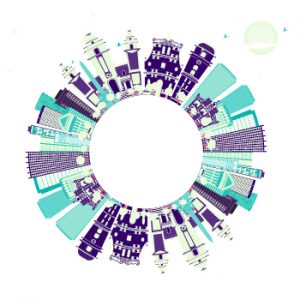
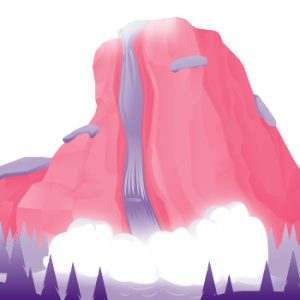
Freedom of Religion
Freedom of religion in Venezuela is guaranteed under the constitution. However, most people are at least nominally adherents of Roman Catholicism. Some indigenous people practice their traditional religions, although many have converted to Roman Catholicism.
Art and Architecture
In the beginning, Venezuelan art was heavily influenced by religion. Martin Toyar-Y Toyar, in the latter part of the 19th century, saw a gradual shift. Venezuelan art was now oriented more toward history and heroism. Modernism was introduced during the 20th century. Arturo Michelena and Antonio Herrera Toro are some well-known Venezuelan artists.
It is inspired by Venezuelan architecture’s ancient structures and formats. Nearly all historic and institutional buildings are linked to historical events.
Famous Water Bodies
Venezuela is well-known for its diverse cultural heritage and rich culture, but also for the Angel Falls, the world’s highest waterfall.
This breathtaking waterfall, which measures 979m (3,212 feet) in height, is located in Bolivar’s Guiana highlands. This waterfall is a stunning tourist attraction, surrounded by the beauty of nature.
Venezuela is blessed with rivers and lakes. Lake Valencia and Lake Maracaibo are two of the most famous lakes. Lake Maracaibo, one of the essential lakes on the continent, is also known as Lake Maracaibo. It is a freshwater lake that is fed by approximately ten rivers. It measures 120 km in width and 160 km in length.
Venezuelan Festivals
We can’t fully understand Venezuelan culture without talking about its festivals. The norms in Venezuela are parades, party nights, dancing, festivities, authentic meals, empanadas, and traditional meals. It is possible to spend hours at the coast and not realize how many hours you have finished with your family and friends.
Venezuelan festivals don’t just include religious traditions. Celebrations in Venezuela are diverse because the heritage combines Caribbean, Spanish, and European traditions.
During Venezuelan festivals, such as those commemorating the Spanish conquest or celebrating cultural diversity in places like Puerto Cabello and the Deep Valleys, attendees engage in activities that reflect the nation’s heritage. These activities blend compulsory subjects like history with contemporary issues like social spending and foreign debt, often with a backdrop of political party influences, including those associated with Nicolas Maduro Moros.
Carupano Carnaval
Each year, more than 400,00 people visit this music-inducing festival.
This carnival celebrated 40 days before Easter, features a lot of fun with rum, salsa dancing, and drum beats. You must attend this celebration if you want to feel the true spirit of Venezuela.
El Dia De San Jose
St Joseph’s Day celebrates South American culture’s Spanish influence.
Ironically, parties, dancing, and bullfighting incidents are associated with Venezuela’s colonial past. Yet, Venezuelans continue to celebrate it.
Semana Senta
This Holy Week’s celebration transforms the capital city. The snake procession starts at the Basilica de Santa Teresa and ends at Plaza Caracas. Festivals and celebrations close with the ritual of burning Judas.
Other festivals are held in honor of saints, Christmas, and homage to heroes and kings.
Venezuelans have seen violence rise, injustice, lack of resources, inequality, lack of access to resources, social crisis, conflicts, and riots despite their rich cultural heritage. They are optimistic because of their upbeat attitude, performances, and joyful celebrations. They are hopeful that the administration will address their concerns. Stabilization of the economy is possible. Caracas will be a safe place for women. The rule of wealth and opportunity will prevail, and corruption will be eliminated.
The Venezuelan masses hope this power will be used for their benefit and their families’ welfare. The youth will soon be offered jobs by more companies in better positions.
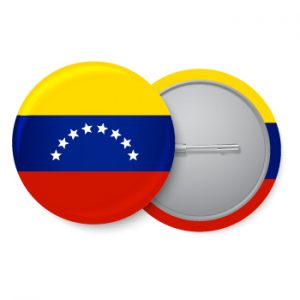
Linguistic Diversity in South America
The influence of South America on the linguistic landscape of the Americas has been profound, with the vast majority of South Americans speaking Spanish, a legacy of the Spanish colonization that began in the 16th century. Along the Venezuelan coasts, and indeed throughout the continent, Spanish became the dominant language, shaping the cultural and communicative practices of the region. While Spanish is the primary language, a rich tapestry of indigenous American languages also persists, reflecting the diverse heritage of South America. This linguistic diversity is a testament to the complex history and cultural evolution of the continent since the arrival of European explorers and settlers.
Ciudad Guayana, a vibrant city in Venezuela named after the liberator Simón Bolívar, is a testament to the country’s rapid urbanization. Venezuela, one of the most urbanized countries in South America, boasts a rich cultural tapestry, with a significant number of native speakers of Spanish and various indigenous languages. The region includes federal dependencies and contested territories like Guayana Esequiba, adding to its complex geopolitical landscape. Ciudad Guayana, in particular, reflects the dynamic interplay between urban development and cultural heritage, embodying the spirit of Bolívar’s vision for a united and progressive South America.
Venezuela’s Political Landscape
During his term of office, the president of Venezuela oversees one of the world’s leading exporters of oil, a critical factor in the country’s economy. The diverse cultural landscape of Venezuela is also reflected in its rich musical styles, which range from traditional folk to modern genres. Delta Amacuro, a region known for its lush landscapes and indigenous communities, highlights the country’s geographical and cultural diversity. The electoral processes in Venezuela, often a topic of international scrutiny, play a crucial role in shaping its political landscape. Additionally, linguistic diversity is evident in the use of regional dialects such as Marabino Spanish, spoken in the Zulia state, which adds to the country’s vibrant cultural mosaic.
As the largest country in South America by land area, Venezuela plays a significant role in regional politics and is an active member of the Organization of American States (OAS). The country is divided into several administrative regions, each with its own local government structures. The Venezuelan president, alongside the vice president, oversees the executive branch and implements national policies. The parliamentary majority, which controls the legislative branch, is crucial in shaping the country’s laws and governance. Together, these elements form the complex political system that navigates the challenges and opportunities facing Venezuela on both domestic and international stages.
Venezuela’s Governance & Relations
Pico Bolívar, the highest peak in Venezuelan territory, stands as a symbol of the nation’s natural grandeur. Within this diverse and expansive landscape, the president of Venezuela governs for five-year terms, a period during which significant decisions are often made through presidential decrees. The political landscape is further shaped by allied parties, which provide essential support to the administration. Additionally, Venezuela includes special territories, areas with unique administrative and legal statuses, reflecting the country’s complex governance structures and the diverse needs of its regions.
The United Kingdom and Venezuela maintain diplomatic relations, with the UK being one of Venezuela’s major allies on the international stage. In Venezuela, universal suffrage ensures that all citizens have the right to vote, contributing to the democratic process. Within the Venezuelan parliament, various political parties, including the Fatherland for All party, represent diverse interests and ideologies. The Consejo Nacional Electoral oversees elections, ensuring transparency and fairness in the electoral process. Despite differences in governance and political systems, both countries uphold principles of democracy and representation in their respective political landscapes.
Venezuela’s Political Landscape
Democratic Action, a prominent political party in Venezuela, has historically played a significant role in shaping the country’s political landscape. Venezuela’s fertile soil and diverse biogeographical regions contribute to its rich diversity of landscapes, supporting various agricultural activities and natural resources. The judicial body in Venezuela, tasked with upholding the rule of law, plays a crucial role in maintaining order and justice within the country. In times of economic crisis, the government may issue an economic emergency decree to address pressing financial challenges and implement necessary measures. Together, these elements underscore the complexity of Venezuela’s political, environmental, and economic dynamics.
Within the legal framework governing Venezuela, portions of laws dictate policies and regulations concerning various aspects of governance and economic activity. As the largest country in South America, Venezuela’s laws extend across diverse territories, including those bordering the Caribbean Sea. The head of government oversees the executive branch, which implements laws and policies formulated by the legislative branch. Government revenues, derived from sources such as taxation and natural resource extraction, are crucial for funding public services and infrastructure projects. Together, these branches of government work in concert to ensure the effective functioning of Venezuela’s legal and administrative systems.
Venezuela’s Governance Dynamics
As the head of government in Venezuela, the president holds significant responsibility for governing the country, overseeing its diverse administrative regions, including those nestled within the Andean valleys. Alongside the vice president, the Venezuelan president plays a crucial role in formulating and implementing policies to address the needs of the population. In times of economic turbulence, such as after capital flight, the government must exercise controls to stabilize the economy and mitigate the impact on its citizens. Through effective leadership and governance, the head of government endeavors to navigate the complexities of Venezuela’s socio-economic landscape and steer the nation towards stability and prosperity.
In Venezuela’s political landscape, the parliamentary majority holds significant sway in shaping the direction of governance and policy-making. Elected for five-year terms, members of parliament wield legislative power over Venezuelan territory, including special territories such as those surrounding landmarks like Pico Bolívar. To effectively govern, political parties often form alliances with other like-minded entities, known as allied parties, to secure a majority in parliament and advance their agenda. Through collaboration and strategic alliances, the parliamentary majority seeks to address the diverse needs and aspirations of Venezuela’s population while navigating the complexities of governing a nation with varied territories and special jurisdictions.
Venezuelan Governance & Democracy
Presidential decrees in Venezuela hold significant weight in shaping governmental policies and regulations, often influencing various aspects of society, including social spending initiatives. While Venezuela and the United Kingdom maintain diplomatic relations, political parties such as Fatherland for All may advocate for specific policies aligned with their ideologies. In navigating international relations, Venezuela considers its major allies when issuing presidential decrees that may impact foreign affairs. These decrees can also address domestic matters, affecting portions of laws and regulations governing the country. Through the implementation of presidential decrees, the Venezuelan government aims to address societal needs and concerns while navigating the complexities of both domestic and international relations.
Universal suffrage in Venezuela ensures that all citizens have the right to participate in the democratic process by voting in elections to elect representatives to the Venezuelan parliament. The Consejo Nacional Electoral, as the electoral body, oversees the implementation of universal suffrage and ensures transparency in the electoral process. Venezuela’s fertile soil, particularly in regions like the Guiana valleys, supports agricultural activities and contributes to the country’s agricultural productivity. Meanwhile, the judicial body plays a crucial role in upholding the rule of law and ensuring justice for all citizens. Through the interplay of universal suffrage, democratic institutions, fertile land, and the judiciary, Venezuela strives to uphold democratic principles and promote the well-being of its people.
Valleys & Social Spending
Venezuela’s industrialized valleys, nestled within the lush landscapes of regions like the Guiana valleys, are characterized by their fertile soil and strategic location near the Caribbean Sea. This combination of natural resources and geographic advantages has fostered the development of thriving industrial hubs. However, the success of these industrialized valleys relies not only on economic factors but also on the effective functioning of the judicial body. This institution ensures that legal frameworks are upheld, promoting fair business practices and resolving disputes. As a result, Venezuela’s industrialized valleys serve as vital contributors to the country’s economy, leveraging their fertile soil and proximity to the Caribbean Sea to drive growth and prosperity.a
In the realm of social spending, the United Kingdom navigates complex legislative processes to allocate resources effectively and address societal needs. Political parties such as Fatherland for All advocate for specific policies aligned with their ideologies, influencing the formulation of portions of laws related to social welfare. Meanwhile, the UK’s major allies play a significant role in shaping its approach to social spending, with collaboration and diplomatic relations informing policy decisions. Additionally, the UK may extend special considerations to territories with unique administrative statuses, impacting their access to social services and resources. Through a dynamic interplay of political dynamics, international relations, and legal frameworks, the United Kingdom endeavors to ensure equitable social spending and promote the well-being of its citizens across various territories.allied parties
Presidential Governance in Venezuela
In Venezuela, the president and vice president serve five-year terms, during which they oversee the governance of the country’s diverse administrative regions, including areas surrounding notable landmarks such as Pico Bolívar. As the highest peak in Venezuelan territory, Pico Bolívar symbolizes the nation’s natural beauty and geographic diversity. The president and vice president work together to address the needs of these administrative regions, implementing policies and initiatives to promote development and ensure the well-being of their inhabitants. Through their leadership, they strive to navigate the complexities of governing a nation with varied landscapes and socio-economic challenges, aiming to foster prosperity and progress across all regions of Venezuela.
Nicolas Maduro Moros, serving as the president of Venezuela since 2013, leads the largest country in South America, navigating its political landscape amidst various challenges and controversies. His term of office has been marked by political tensions and economic hardships, both domestically and internationally. Amidst criticisms from various quarters, including the Organization of American States, Maduro has faced scrutiny over issues such as human rights violations and allegations of electoral fraud. Additionally, the territorial dispute over Guayana Esequiba, an area claimed by Venezuela, adds to the complexities of Maduro’s presidency, as he grapples with diplomatic negotiations and territorial disputes while striving to maintain stability and sovereignty within Venezuela.Nicolas Maduro addressed the nation in a televised speech, outlining his plans for economic reform.
Frequently asked questions
What is the official language of Venezuela?
Spanish is the official language of Venezuela.
Are there any indigenous languages spoken in Venezuela?
Yes, there are several indigenous languages spoken in Venezuela, such as Wayuu, Warao, and Pemon, among others.
How did Spanish become the dominant language in Venezuela?
Spanish became the dominant language in Venezuela due to the Spanish colonization that began in the 16th century.
Are there any regional dialects of Spanish spoken in Venezuela?
Yes, there are regional dialects of Spanish spoken in Venezuela, such as Marabino Spanish in the Zulia state.
Is English widely spoken in Venezuela?
While Spanish is the predominant language, English is also spoken in certain regions of Venezuela, particularly in tourist areas and among business communities.


Sorry, the comment form is closed at this time.